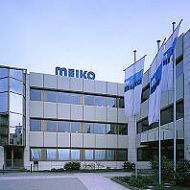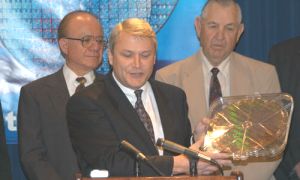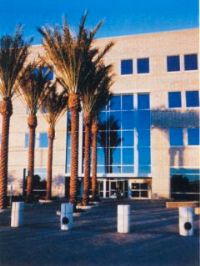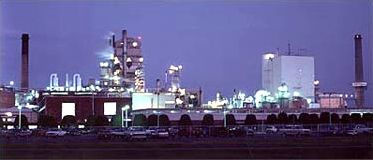|
by JACK LYNE, Site Selection Executive Editor of Interactive Publishing
NASHVILLE, Tenn. – Many an aspiring musician, drawn by dreams to Nashville, Tenn.'s fabled "Music City," has ended up instead waiting tables and washing dishes. Washing dishes, though, is exactly why Meiko Maschinenbau is coming to Nashville. The world's second-largest manufacturer of commercial dishwashers is moving to the Tennessee city to try to make it big in the States.
Subsidiary Meiko USA is setting up shop in 18,000 sq. ft. (1,620 sq. m.) of space near Nashville International Airport. The Offenburg, Germany-based company says that within three years it will employ 100 workers in Nashville, where its operations will include manufacturing.
|
But Meiko Maschinenbau, while it's the second-biggest player in commercial dishwashers, is hardly a household name in the USA - and with good reason. Though the company is both Europe's and Asia's No. 1 maker of catering equipment, Meiko Maschinenbau hasn't, at least until now, attempted to directly tap the U.S. market for commercial dishwashers.
The Nashville facility, Meiko's first U.S. operation, signals the company's move to challenge the No. 1 player in its field "on their home ground and in their own backyard," said Meiko USA President and General Manager Martin Schenk.
Troy, Ohio-based Hobart Corp., ranks as the world's No. 1 manufacturer of high-end dishwashers. Hobart is a specialty systems division of Glenview, Ill.-based Illinois Tool Works Inc.
Meiko gave Schenk the prerogative to choose where the company would make its maiden North American location voyage. Schenk chose Nashville, the Tennessee capital where he had been living for the last several years.
The site Schenk chose is near Dell Computer's huge corporate campus. The company will open its operation with 15 workers, staffing up to the 100-employee level over a three-year span, Schenk said.
Meiko will ultimately move into a stand-alone structure to accommodate its growth, he added. The stand-alone facility, Schenk explained, will also likely be near Nashville International, an area he called "great for distribution."
The German company will house a range of functions in Nashville, spanning light manufacturing, distribution, sales and executive positions. Meiko USA's dishwashers will initially only be assembled in Tennessee with imported parts. Ultimately, though, the Nashville operation will build its commercial dishwashers from scratch, Schenk said.
Meiko's American aims are aggressive. The company is driving to garner a 20-percent share of the U.S. market within five years, company officials said. The company is targeting operations with large-volume dishwashing requirements, including airplane manufacturers, cruise-line chains, hotel chains, school systems and restaurant chains. Each of Meiko's dishwashers includes a customized conveyor system, Schenk said.
|
of Arizona Fab, Mulling
New Indian Fab
by JACK LYNE, Site Selection Executive Editor
of Interactive Publishing
CHANDLER, Ariz. – Intel, the Daddy Warbucks of corporate capital spending, is at it again.
The Santa Clara, Calif.-based chip king has announced that it will spend $2 billion in upgrading its Fab 22 operation in Chandler, Ariz. And Intel may have yet another new multibillion-dollar fab in the works for India.
The Arizona upgrade will convert Fab 22 from 200-mm to 300-mm production. The converted wafer fabrication facility is relatively new, only completed in 1996. The advantages of switching to 300-mm production, however, were compelling, Intel officials explained.
"Three-hundred-mm production, combined with leading-edge manufacturing, gives us the ability to deliver to our customers greater computing power and functionality at lower costs," Bob Baker, senior vice president and general manger of Intel's Technology and Manufacturing Group, explained at a press conference in Chandler. "This investment is consistent with our belief that Moore's Law is alive and well."
"Moore's Law" is a theory originally posited by Intel co-founder Gordon E. Moore. The number of transistors per square inch, Moore predicted in 1965, would double every year, just as it had every year since the integrated circuit's invention in 1958.
|
The Arizona upgrade is a move to ensure that that someone is Intel. Switching to 300-mm production will produce faster chips and at lower costs, Intel officials explained. "This technology greatly improves our capital efficiency by giving us more than twice the capacity at significantly lower costs," Baker said.
The 300-mm process uses silicon wafers that are about the size of a dinner plate. The 300-mm wafers have 225 percent more surface area than 200-mm wafers. Using larger 300-mm wafers produces 240 percent more individual computer chips than can be produced using 200-mm wafers. In addition, Intel will be able to etch more information power into chips made with the 300-mm process. Circuits on the 300-mm chips will be as close together as 65 nanometers, Baker said. The 300-mm conversion will also lower Fab 22's energy requirements, Baker explained. The 300-mm manufacturing process will use 40 percent less power and water per chip than a 200-mm wafer factory.
Choosing the Chandler site further provides Intel with a proven work force, Baker said. In contrast to Intel, many other chip makers have cut back production in the face of the industry's persistent slump. Intel, though, has consistently worked to stay ahead of the demand curve, Intel Chief Executive Craig Barrett explained at a press conference in San Jose before his keynote address at late February's Intel Developer Conference.
"We always position ourselves with enough capacity to grow faster than the industry," Barrett explained. "By most accounts, we're at the bottom [in industry demand], and we've only got one direction to and that's up."
Later, Barrett told the audience of 4,000 hardware and software engineers, "There is pent-up demand out there. What's going to ignite that pent-up demand is innovation."
Intel, Barrett said, will continue with its planned 2003 capital spending budget, which will range between $3.6 billion and $3.9 billion, the company has estimated.
Fab 22 will be Intel's fifth 300-mm fab. The company currently has two 300-mm fabs in operation - one in Hillsboro, Ore., the second in Rio Rancho, N.M. Two other 300-mm facilities are under construction. A 300-mm Oregon fab will begin operations later this year, and a 300-mm Irish fab that's currently under construction is scheduled to begin operations in the first half of 2004. The Fab 22 upgrade won't have any impact on employment levels in Chandler, where Intel employs some 10,000 workers.
India is where Intel's employment impact may soon register a major tremor. The chip maker is said to be considering opening a new fab somewhere in the world's second most populous nation. The facility would involve a capital investment of at least $2 billion, industry analysts say. Barrett suggested that an Indian fab might be on the drawing boards during a February visit to Australia. "It should come as no surprise that we export our manufacturing operations to areas where there is a skills surplus, such as India," he told a press conference.
Intel already employs 1,000 workers in India, but has no fab in the nation. One area rumored to be a major contender for a fab is Bangalore, where Intel has a design and development center. Intel officials have not confirmed whether an Indian fab will definitely be built.
"The property is no longer part of the company's future plans [because of] changes in manufacturing technology and current construction projects at existing Intel sites," the company said in a news release.
for East Coast Manufacturing Site
by JACK LYNE, Site Selection Executive Editor of Interactive Publishing
and ADAM BRUNS, Site Selection Managing Editor
|
The company picked the site in Jesup, located some 75 miles (120 kilometers) west of Savannah, after what IAI Chairman Gordon L. Ellis described as "a comprehensive search of potential eastern U.S. sites."
"Proximity to reliable pulp sources and [the site's] good rail and highway access" were major factors in the company's decision, Ellis said.
In addition, the Jesup site includes an existing 42,000-sq.-ft. (3,780-sq.-m.) facility that company officials described as "suitable for IAI's production requirements."
"Our objective is to build a new manufacturing plant in a location much closer to the majority of our customer base," Ellis explained. "A new plant will give us backup production capacity for our existing manufacturing site in Washington state and provide additional production capacity to support our ongoing and projected growth for the near to mid term."
IAI hasn't yet released projected capital expenditures and employment for the Georgia operation.
Underscores Company's Rapid Expansion
When completed, the Bellingham plant will consolidate four of the company's five Bellingham-area operations at one site. The consolidation will decrease the company's lease payments by $35,000 a month, as well as offering significant economies of scale in labor, equipment and energy. Total annual savings from the consolidation will approach $500,000 a year, company officials estimated.
Of equal importance to IAI is the new site's expansion readiness. The 15.6-acre (6.2-hectare) property has enough space to provide for further expansion of the manufacturing operation to more than 200,000 sq. ft. (18,000 sq. m.). IAI considered other locations, but its existing work force in Washington sealed the decision to expand in Bellingham, company officials said. Expansion has been a watchword of late for the small company. Last year's sales of $12.2 million marked a 28.7 percent annual increase.

A company that depends on pulp waste to make its products, IAI has continued to grow because of other waste products, said spokesman Chuck Tait.
"The company has done well because of its core business and not too much backlash from the negative economy," Tait explained. "People continue to buy bedding for their pets. We do sell some other auxiliary products, but as for the bedding, the animals continue to do their business."
 PLEASE VISIT OUR SPONSOR • CLICK ABOVE
PLEASE VISIT OUR SPONSOR • CLICK ABOVE 
©2003 Conway Data, Inc. All rights reserved. Data is from many sources and is not warranted to be accurate or current.




